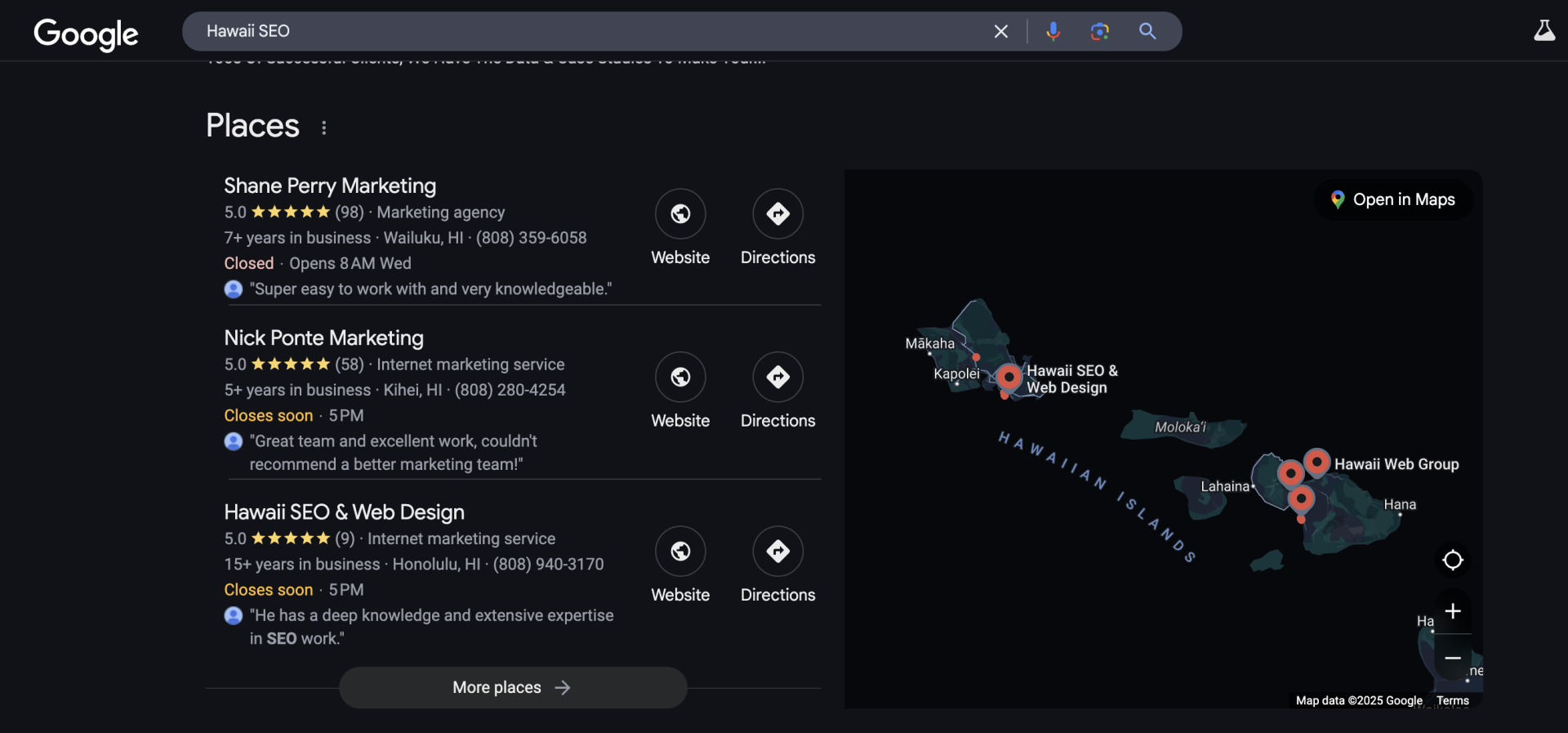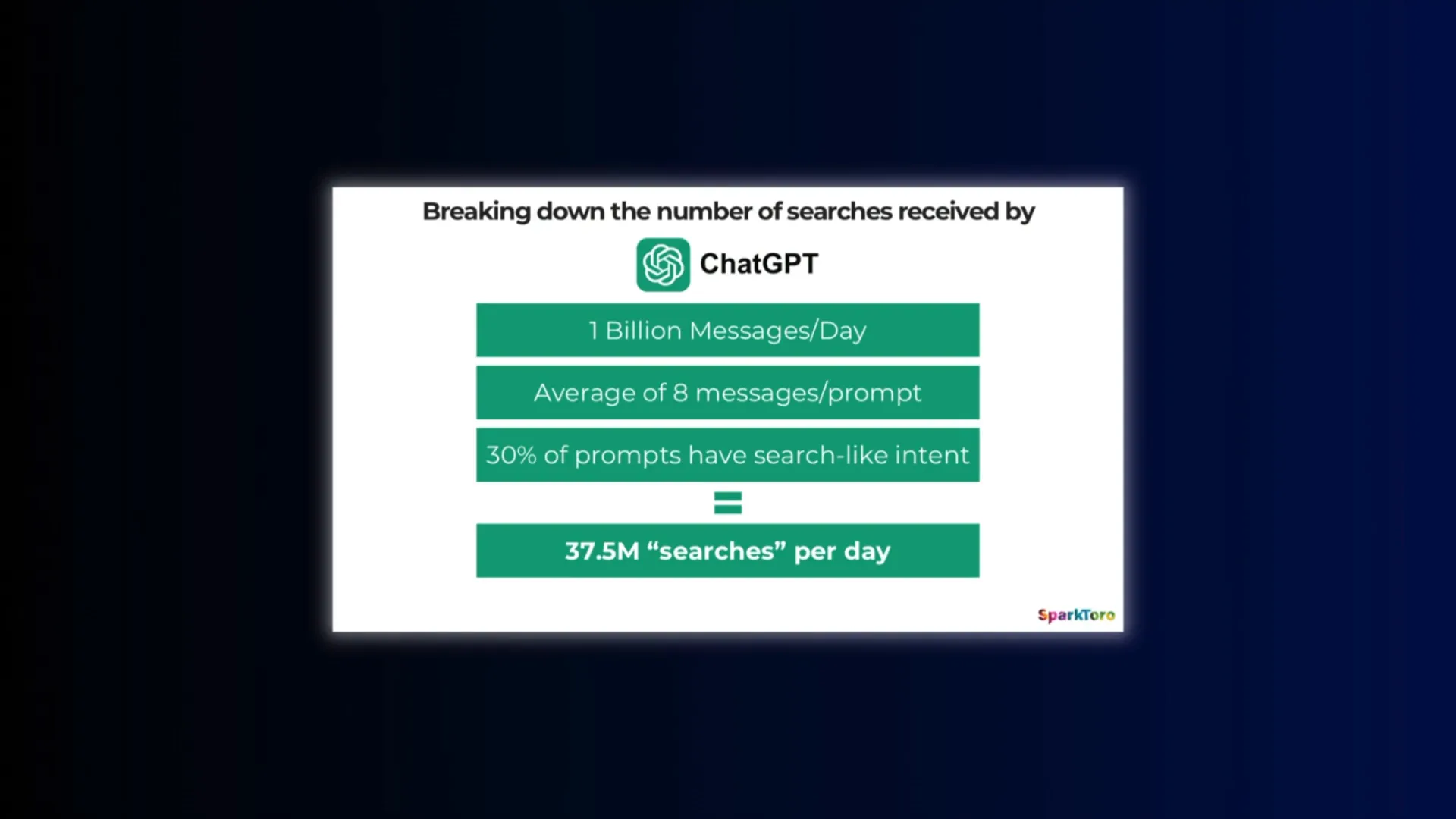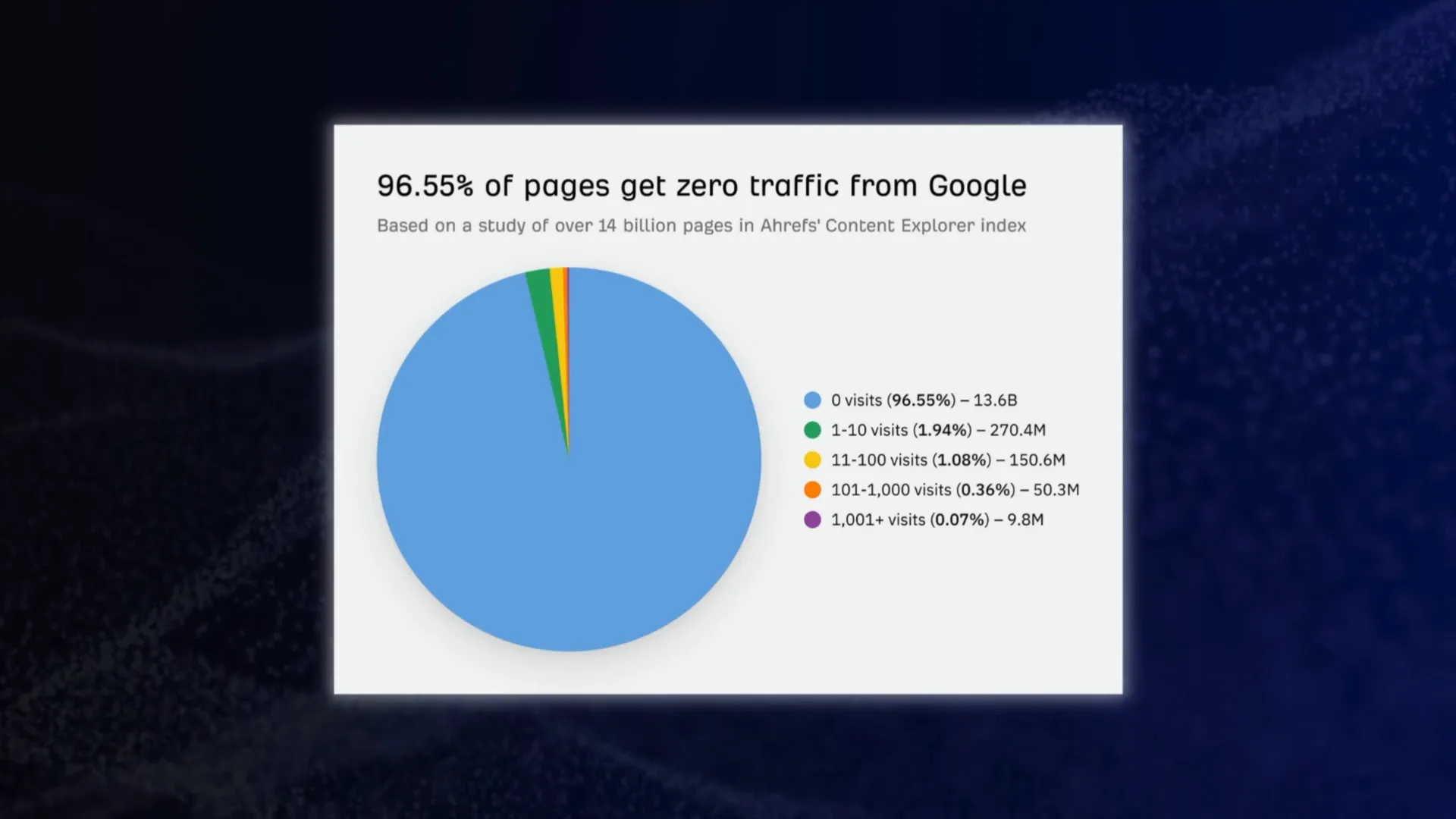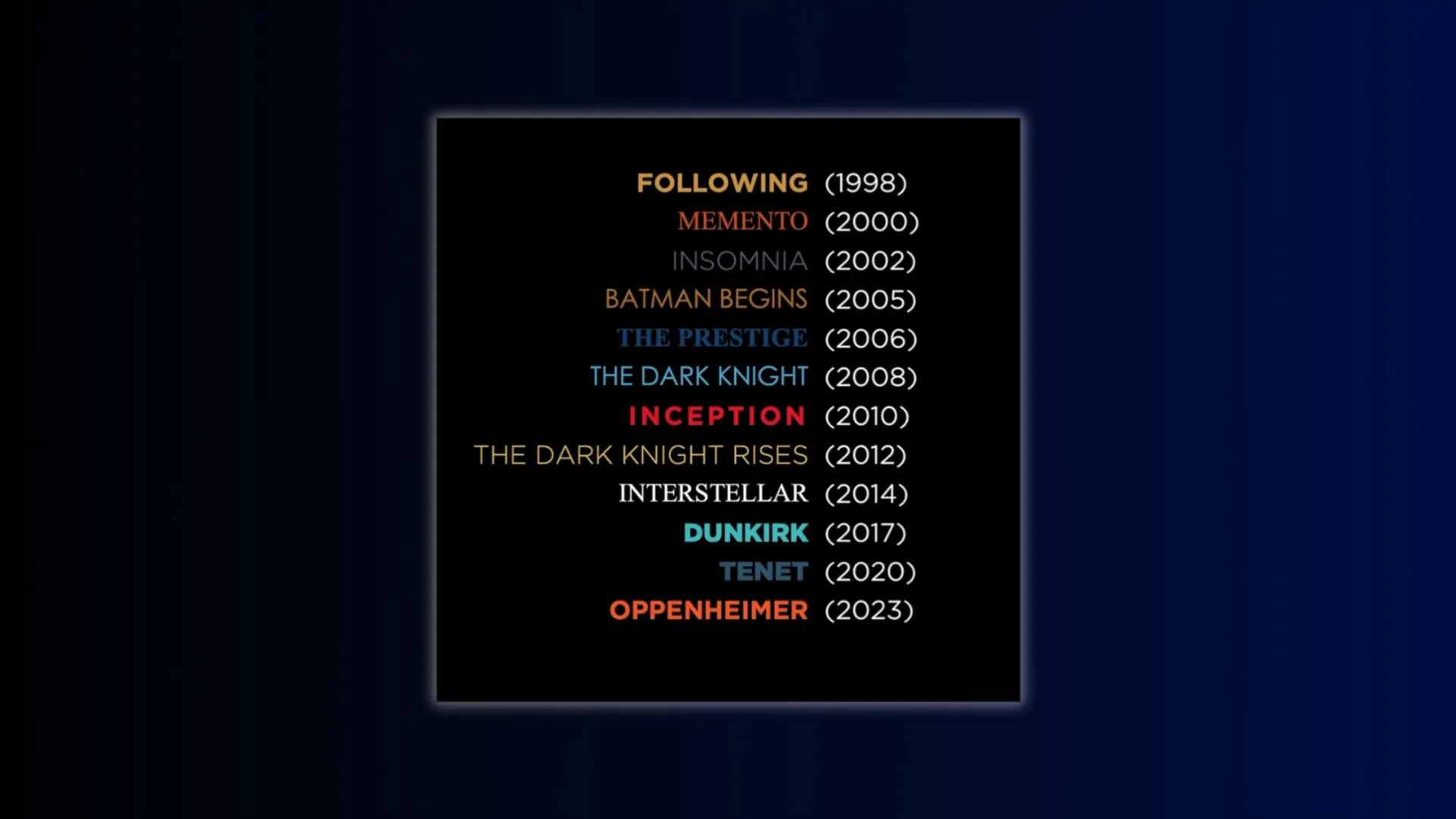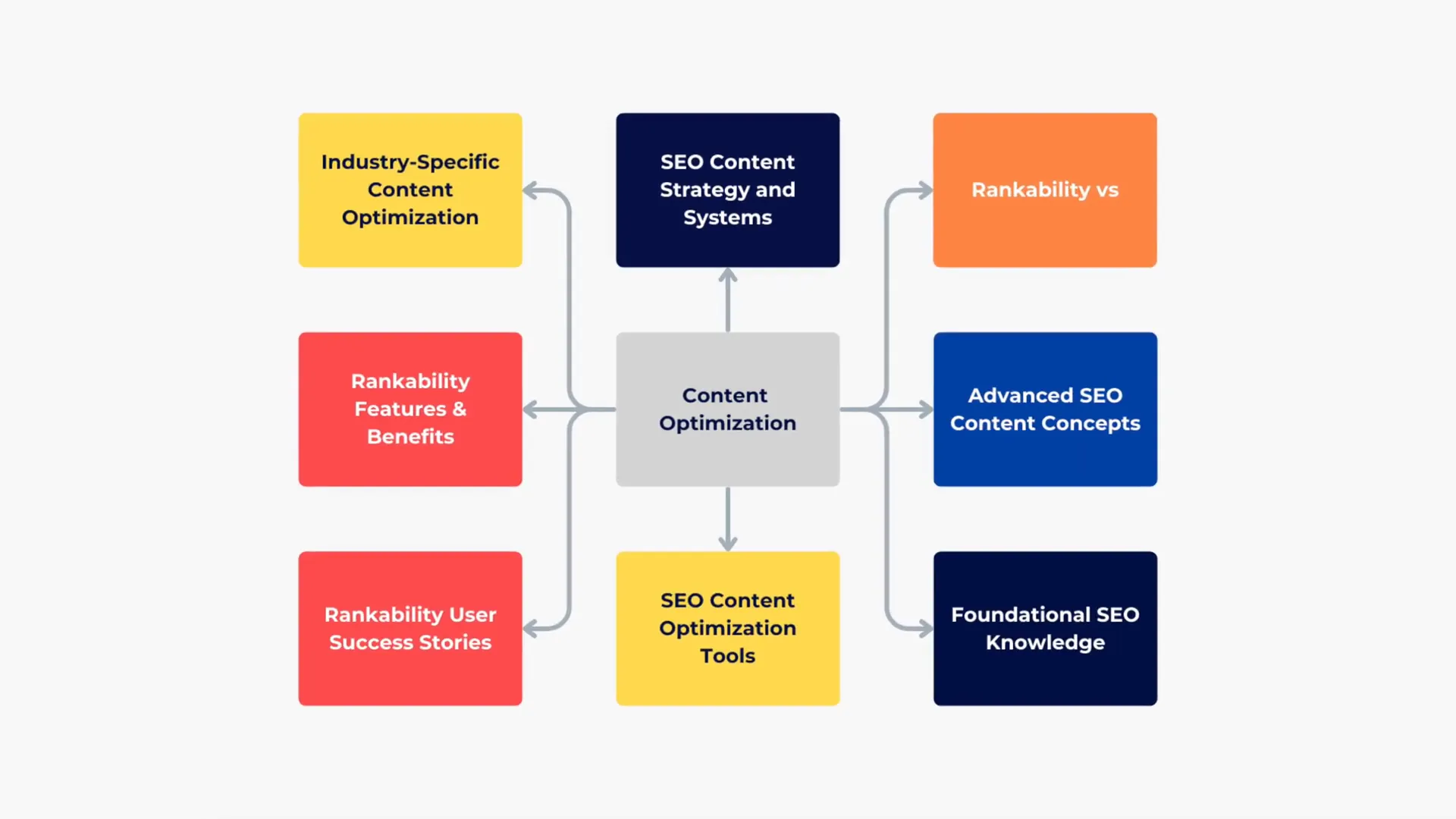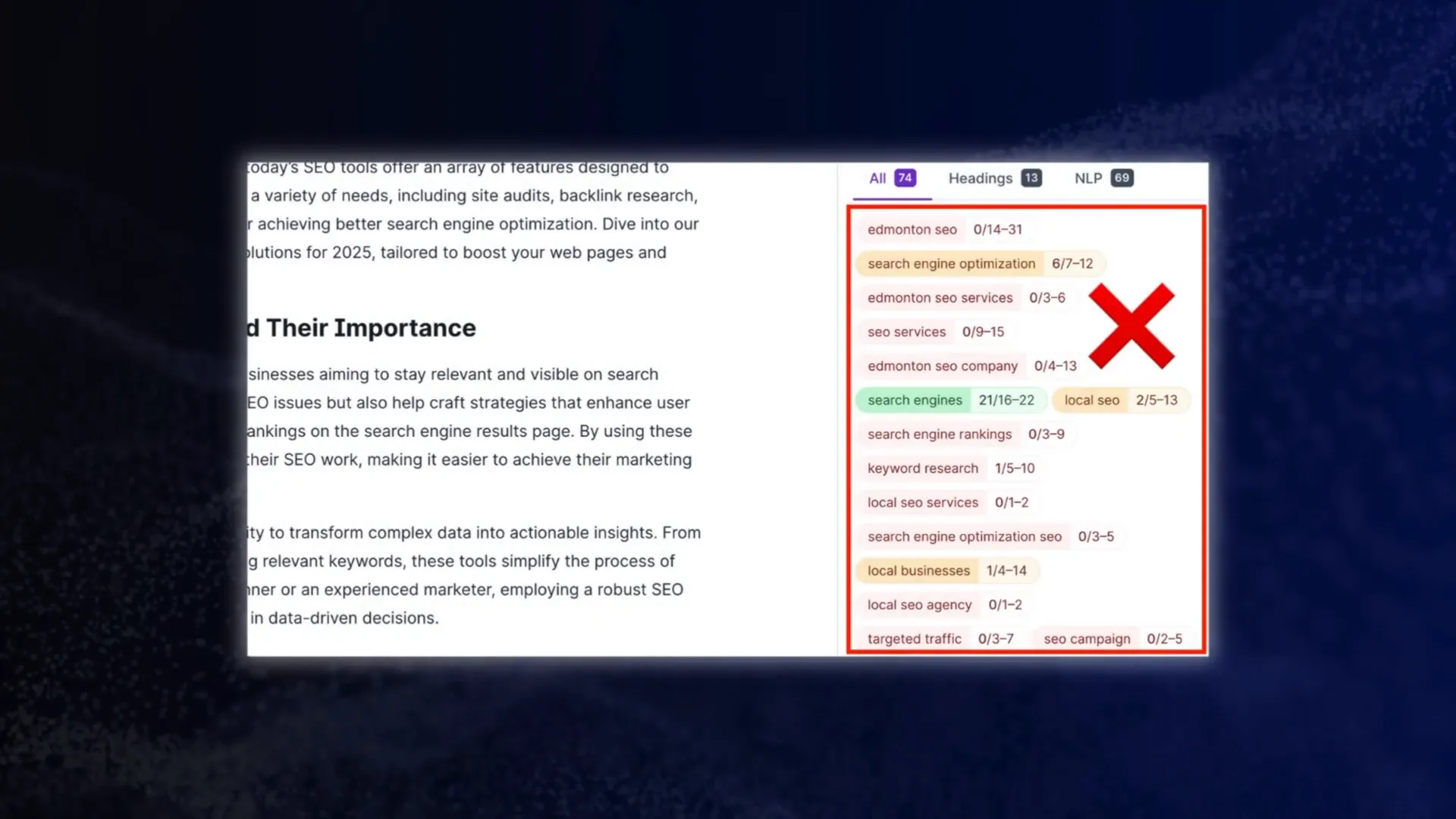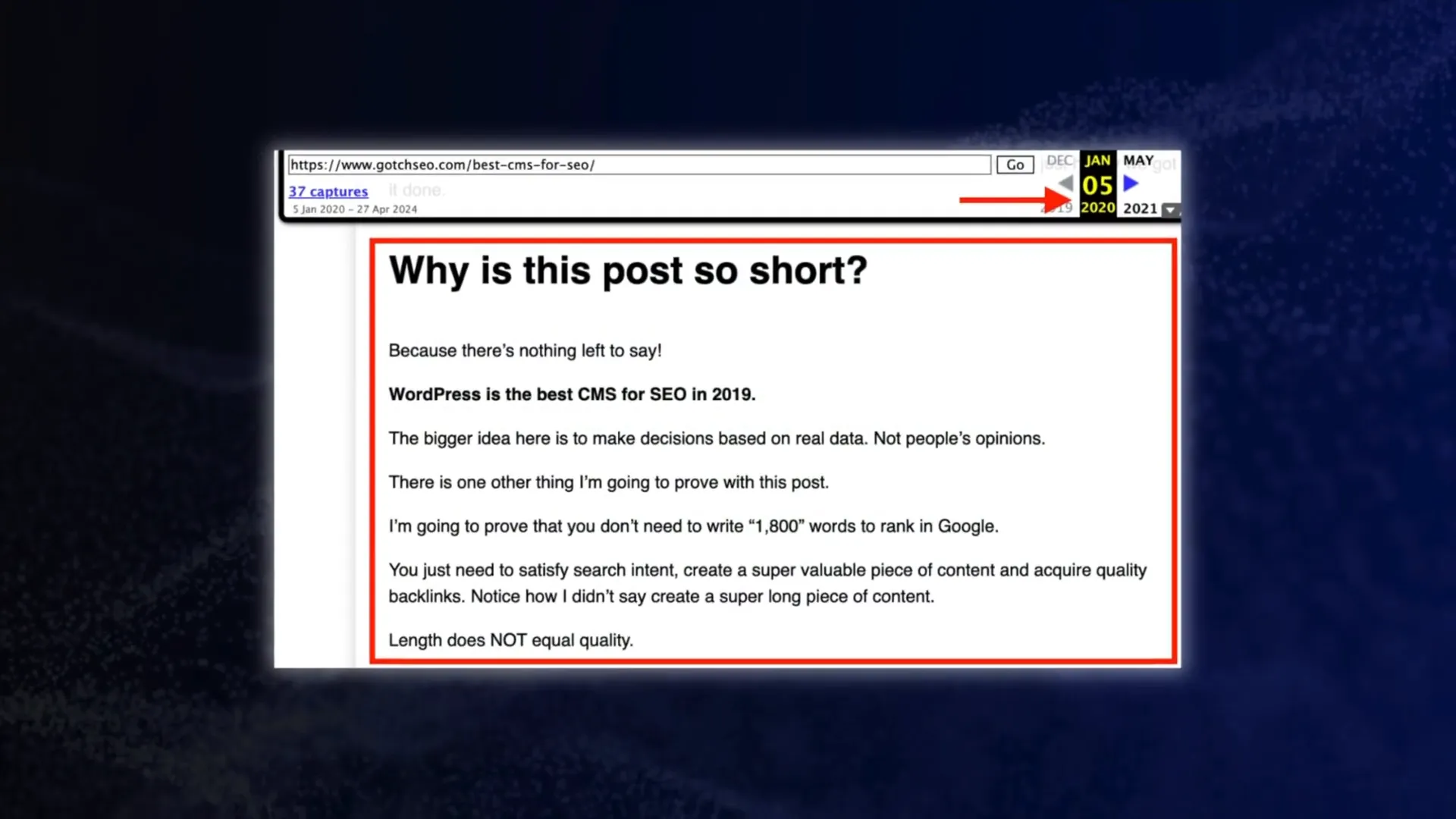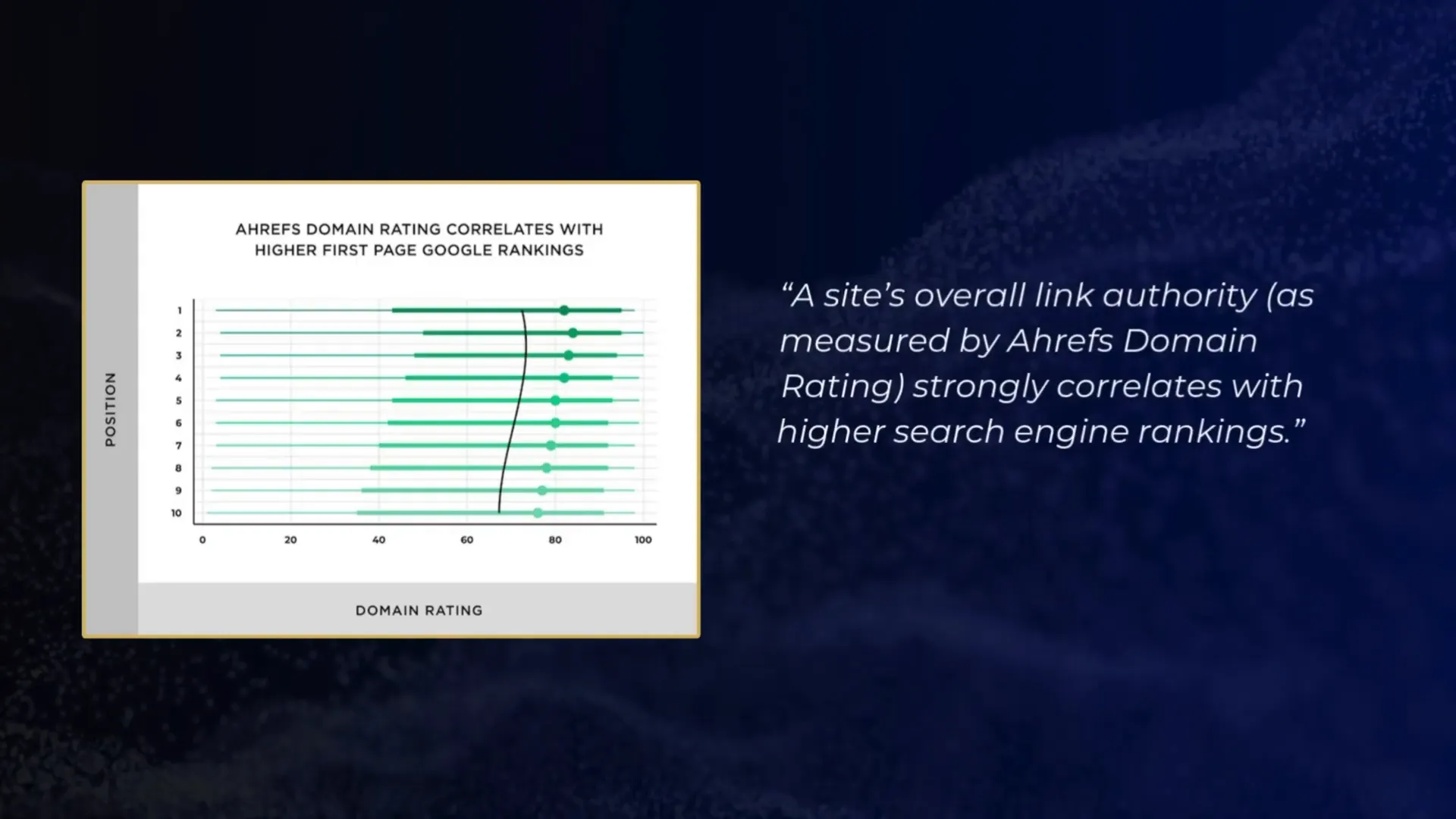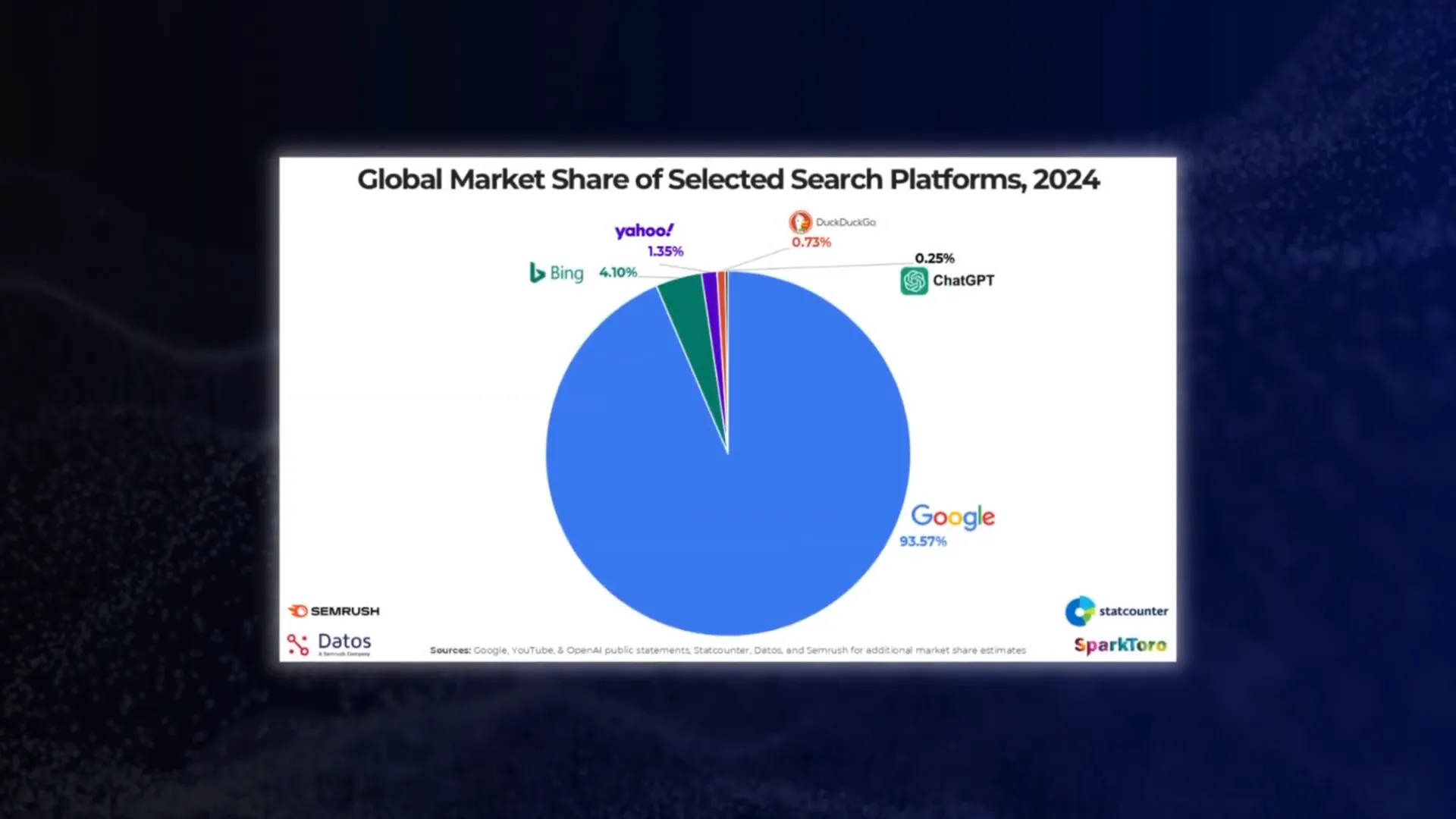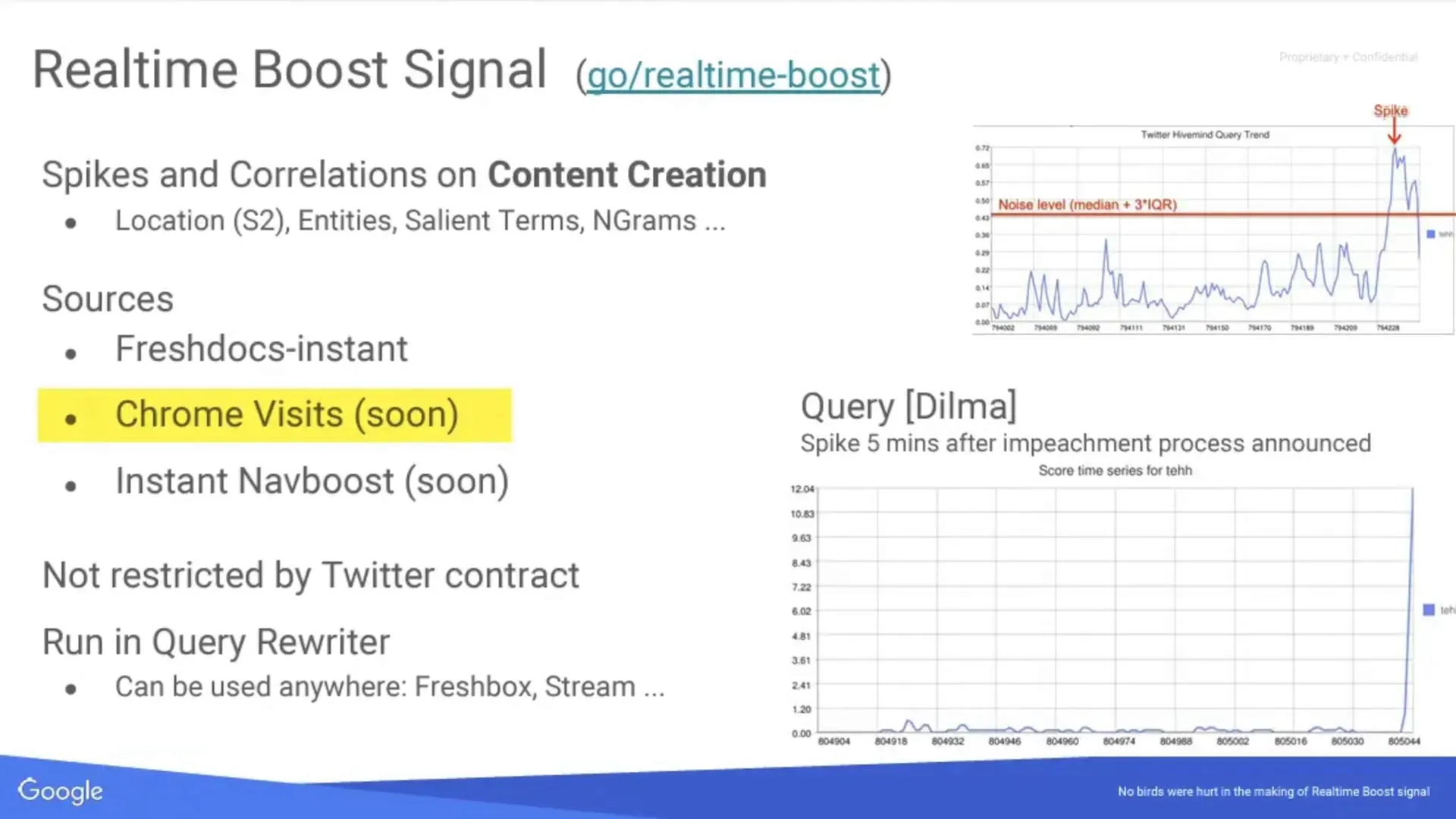10 SEO Myths Debunked: What You Need to Know for 2025
In the ever-evolving world of SEO, misconceptions can lead to wasted time and resources. We’re diving into the ten biggest SEO myths that are still holding people back in 2025. Let’s get started!
Table of Contents
- 1. SEO Is Dead
- 2. You Need to Create a Ton of Content
- 3. You Need to Publish Consistently
- 4. Keywords Are Dead
- 5. Keyword Density Is a Ranking Factor
- 6. Longer Content Always Ranks Better
- 7. Backlinks Aren’t Important Anymore
- 8. SEO Is Just for Google
- 9. Exact Match Domains Don’t Work
- 10. Brand Signals Don’t Matter
- Conclusion
- FAQ
1. SEO Is Dead
Let’s clear this up right away: SEO is far from dead. In fact, according to SparkToro, searches on Google grew by 21% last year, and Google still controls a whopping 93% of the global search market. While it’s true that organic click-through rates are declining, SEO remains the single biggest opportunity for organic traffic.
2. You Need to Create a Ton of Content
Quality trumps quantity every time. According to Ahrefs, over 97% of all web pages get zero organic traffic. Instead of flooding the web with content, focus on creating in-depth, high-quality pieces that truly resonate with your audience.
3. You Need to Publish Consistently
Google doesn’t reward you for sticking to an editorial calendar. What matters is the quality of your content and how well it matches search intent. Aim for quality over quantity, just like Christopher Nolan does with his films.
4. Keywords Are Dead
Keywords are not dead; they’ve just evolved. Instead of randomly targeting high-volume keywords, focus on your core offer and build a keyword strategy that aligns with the customer awareness journey.
5. Keyword Density Is a Ranking Factor
My team analyzed over 1,500 Google search results and found no correlation between keyword density and rankings. Instead, focus on topic coverage and information gain.
6. Longer Content Always Ranks Better
Length alone doesn’t determine SEO success. A concise, well-optimized piece can rank just as well as a lengthy article. Focus on delivering unique information that Google hasn’t seen before.
7. Backlinks Aren’t Important Anymore
Backlinks are still crucial for SEO. Studies show that a site’s overall link authority significantly correlates with higher search engine rankings. If you’re not promoting your content, you’re missing out on valuable SEO potential.
8. SEO Is Just for Google
While Google should be your main focus, diversifying your SEO efforts across multiple platforms can help you capture more SERP real estate. Don’t put all your eggs in one basket.
9. Exact Match Domains Don’t Work
Exact match domains (EMDs) can still rank well. A one-page website with an EMD can outperform larger agencies with stronger backlink profiles.
10. Brand Signals Don’t Matter
Brand signals are essential for SEO. A site with strong backlinks but no brand engagement raises red flags for Google. Direct traffic likely plays a role in how Google evaluates websites.
Conclusion
Understanding these myths can help you focus your SEO efforts more effectively. SEO is not just about rankings; it’s about creating value and relevance for your audience.
FAQ
How can I stay updated on SEO trends?
Regularly follow SEO news, join webinars, and participate in industry forums to stay current with changes and best practices.
What are the best practices for quality backlinks?
Focus on creating high-quality content that naturally attracts links from reputable sites. Consider using services like Digital Reach for professional help in acquiring backlinks.
For more insights, check out our blog on 5 Actionable SEO Techniques to enhance your website’s rankings!
In the ever-evolving world of SEO, misconceptions can lead to wasted time and resources. We’re diving into the ten biggest SEO myths that are still holding people back in 2025. Let’s get started!
Table of Contents
- 1. SEO Is Dead
- 2. You Need to Create a Ton of Content
- 3. You Need to Publish Consistently
- 4. Keywords Are Dead
- 5. Keyword Density Is a Ranking Factor
- 6. Longer Content Always Ranks Better
- 7. Backlinks Aren’t Important Anymore
- 8. SEO Is Just for Google
- 9. Exact Match Domains Don’t Work
- 10. Brand Signals Don’t Matter
- Conclusion
- FAQ
1. SEO Is Dead
Let’s clear this up right away: SEO is far from dead. In fact, according to SparkToro, searches on Google grew by 21% last year, and Google still controls a whopping 93% of the global search market. While it’s true that organic click-through rates are declining, SEO remains the single biggest opportunity for organic traffic.
2. You Need to Create a Ton of Content
Quality trumps quantity every time. According to Ahrefs, over 97% of all web pages get zero organic traffic. Instead of flooding the web with content, focus on creating in-depth, high-quality pieces that truly resonate with your audience.
3. You Need to Publish Consistently
Google doesn’t reward you for sticking to an editorial calendar. What matters is the quality of your content and how well it matches search intent. Aim for quality over quantity, just like Christopher Nolan does with his films.
4. Keywords Are Dead
Keywords are not dead; they’ve just evolved. Instead of randomly targeting high-volume keywords, focus on your core offer and build a keyword strategy that aligns with the customer awareness journey.
5. Keyword Density Is a Ranking Factor
My team analyzed over 1,500 Google search results and found no correlation between keyword density and rankings. Instead, focus on topic coverage and information gain.
6. Longer Content Always Ranks Better
Length alone doesn’t determine SEO success. A concise, well-optimized piece can rank just as well as a lengthy article. Focus on delivering unique information that Google hasn’t seen before.
7. Backlinks Aren’t Important Anymore
Backlinks are still crucial for SEO. Studies show that a site’s overall link authority significantly correlates with higher search engine rankings. If you’re not promoting your content, you’re missing out on valuable SEO potential.
8. SEO Is Just for Google
While Google should be your main focus, diversifying your SEO efforts across multiple platforms can help you capture more SERP real estate. Don’t put all your eggs in one basket.
9. Exact Match Domains Don’t Work
Exact match domains (EMDs) can still rank well. A one-page website with an EMD can outperform larger agencies with stronger backlink profiles.
10. Brand Signals Don’t Matter
Brand signals are essential for SEO. A site with strong backlinks but no brand engagement raises red flags for Google. Direct traffic likely plays a role in how Google evaluates websites.
Conclusion
Understanding these myths can help you focus your SEO efforts more effectively. SEO is not just about rankings; it’s about creating value and relevance for your audience.
FAQ
How can I stay updated on SEO trends?
Regularly follow SEO news, join webinars, and participate in industry forums to stay current with changes and best practices.
What are the best practices for quality backlinks?
Focus on creating high-quality content that naturally attracts links from reputable sites. Consider using services like Digital Reach for professional help in acquiring backlinks.
For more insights, check out our blog on 5 Actionable SEO Techniques to enhance your website’s rankings!
